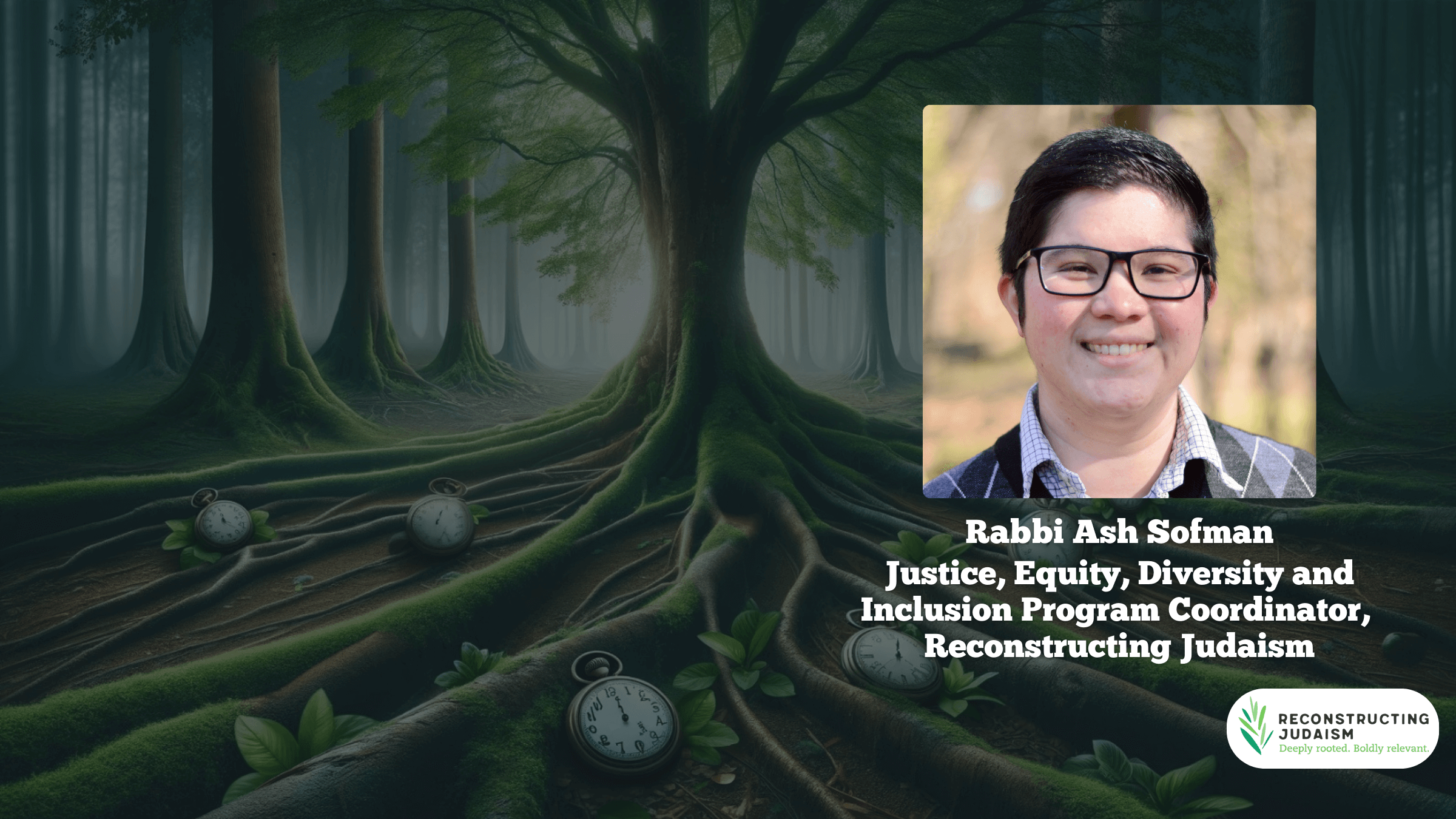The View from My Crate: Calling for Equitable Jewish Communities
What does it mean if our communities are not equitable — if the people who make and come into contact with our movements and congregations find unequal access to the sources of connection and meaning they seek?

While definitions of equity vary, my most elementary understanding of it is best illustrated by a graphic created by artist Angus Maguire for the Interaction Institute for Social Change. The widely shared graphic draws a simple distinction between equality and equity through three people watching a baseball game over a fence. On the side of the image demonstrating “equality,” each spectator has a crate to stand on. Each crate boosts the tallest and middle-height individuals high enough to view the game, but leaves the shortest person stuck below with no line of sight.
In the “equity” version of the scene, the shortest character gets two of those crates while the tallest goes without. This configuration places all their heads at the same height above the fence; all of them can see the diamond. Purposeful, unequal distribution of tools — that is, the crates — provides equal access to the aim: enjoyment of the game. I’d argue that it produces an even greater benefit. Beyond the enjoyment of watching the game, they now share the experience of watching the game together, with the potential to build a relationship through a shared experience.
What is community but the shared experiences, shared relationships, shared practices, stories, or values across time and space? What is our Jewish community’s aim if not to be the foundation for shared living, to offer those very times, spaces, and sacred things through which Jews engage in the relational act of being Jewish?
Rabbi Mordecai M. Kaplan’s work, which has deeply influenced modern Jewish thinking about peoplehood, insists that community is just as vital to the fulfillment of the individual as the individual is to the community’s existence. What does it mean, then, if our communities are not equitable — if the people who make and come into contact with our movements and congregations find unequal access to the sources of connection and meaning they seek?
I’ll speak from experience, as a half-Filipino, transgender Jew who has walked into synagogues and seminary classes that thought themselves inclusive. It’s profoundly obvious when a space, either physical or metaphorical, was not built with me in mind. You might not have a way in — literally, for many with visible, invisible, and financial disabilities or who find themselves turned away. And even if you’re waved in the door, even if you’ve been warmly enveloped among your people for ages, a careless comment — or, worse, long-term thoughtlessness, programs that do not take your needs and experiences into account, barriers built on assumptions—might knock you out of the project of community. Suddenly, the fence is in your face. Sometimes, it’s possible to get back in the groove, but the realization forces you to recalibrate your understanding of who you are while the group continues to etch in the we experience. Sometimes, for some people, there is no going back.
This is why I hope every community, every people, every organization and institution — both Jewish and civil — commits consciously to justice, equity, diversity, and inclusion. Even knowing that we recreate community every time we come into it, we still live in buildings, peoples, idea-spaces, and patterns of thought that do not offer us equal access to our own belonging and self-value within them. Unless we actively choose to address those inequities, we fall short of Jewish community’s basic mission. “Salvation is possible only through a community based upon the pursuit of the common good in a spirit of justice and equality,” Kaplan writes in Judaism as a Civilization. When we distribute our crates with an eye toward a shared experience of life, we all stand a much better chance of seeing it.
“Moving Through the Wilderness: Recommitting to Equity After 10/7” is a collection of brief essays born out of Elevate: An Executive Leadership Equity Accelerator. Elevate launched in May 2023 and its first cohort consisted of eleven CEOs of influential Jewish institutions, who are committed to the Jewish value and responsibility of equity within our community. The idea for this project emerged in Montgomery, Alabama during one of Elevate’s in-person convenings in early 2024. To learn more about Elevate and the program’s co-founders and leaders, Gamal J. Palmer and Catherine Bell, click here.
Moving Through the Wilderness is presented in partnership with the Forward, the leading voice in Jewish journalism. Read more essays in the collection.












